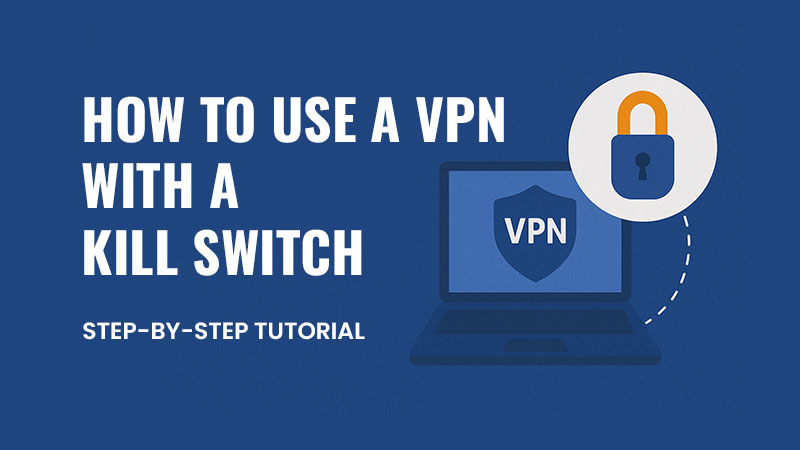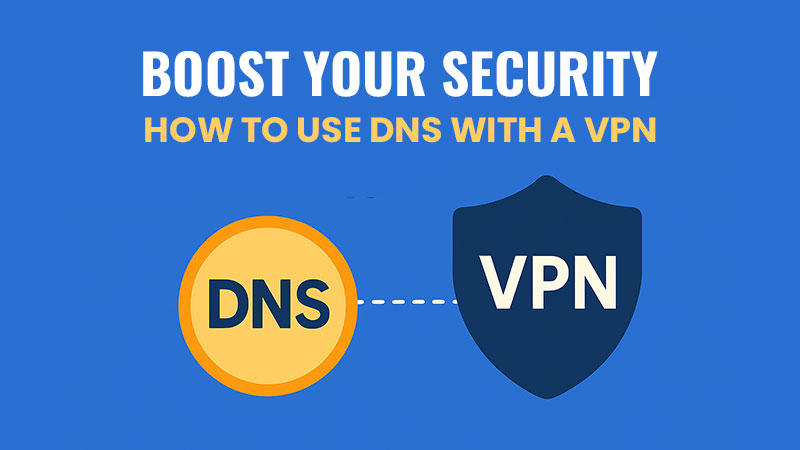When choosing a VPN, security, speed, and compatibility matter. But there’s one critical aspect that often gets overlooked: the VPN protocol. Whether you’re streaming, torrenting, or just browsing securely, the right VPN protocol can make a big difference in your online experience.
This guide covers the most commonly used VPN protocols—PPTP, L2TP/IPSec, OpenVPN, IKEv2/IPSec, and WireGuard—and helps you identify which one best meets your needs. It also features a detailed comparison to support informed decision-making.
What Is a VPN Protocol?
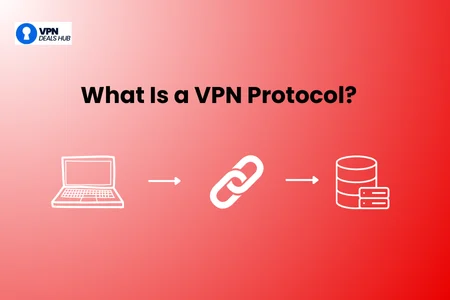
A VPN protocol outlines the rules and processes that govern how data is securely transmitted between your device and the VPN server. Think of it as a set of instructions that ensures your internet connection is private, secure, and sometimes faster, depending on the protocol used. It governs critical factors like encryption strength, connection speed, and data integrity.
There are several VPN protocols available today, each tailored for specific needs — whether you’re streaming, gaming, securing sensitive data, or bypassing firewalls. Choosing the right one helps establish a secure VPN connection that fits your lifestyle and technical requirements.
Some VPN protocols, like PPTP, are designed for speed but offer limited security. Others, such as OpenVPN and WireGuard, strike a balance between performance and strong encryption, making them suitable for most users. Understanding the strengths and limitations of each protocol is key to choosing one that best fits your needs, whether that’s privacy, compatibility, or speed.
The growing popularity of VPNs makes this decision even more crucial. With the help of this article and its detailed VPN protocol comparison, you’ll be equipped to make an informed choice that suits your online activities.
1. PPTP (Point-to-Point Tunneling Protocol)

PPTP has been around for a long time—it was created by Microsoft back in the mid-1990s, making it one of the earliest VPN protocols. It became widely popular due to its integration with Windows operating systems and ease of configuration. Because of its age and widespread adoption, almost all platforms — from Windows and macOS to Linux, Android, and iOS support PPTP natively.
While PPTP offers simplicity and fast performance, it does so at the expense of strong security. PPTP uses basic encryption (128-bit), which is considered outdated by modern standards. It’s been proven vulnerable to several known exploits, making it unsuitable for users who prioritize privacy or need to protect sensitive information.
That said, PPTP still has a place for users who are looking for high-speed connections with minimal setup, especially for low-risk activities like unblocking geo-restricted content or casual web browsing.
|
|
Extremely fast due to low encryption overhead | Weak encryption and known security vulnerabilities |
Simple to configure and compatible with a wide range of devices. | Readily detected and blocked by firewalls; not suitable for protecting sensitive information |
Good for streaming or accessing region-locked content | No longer maintained |
Best for: Speed over security (e.g., streaming geo-restricted content).
Avoid if: You need strong security or privacy, or are in a restrictive network environment.
2. L2TP/IPSec (Layer 2 Tunneling Protocol)
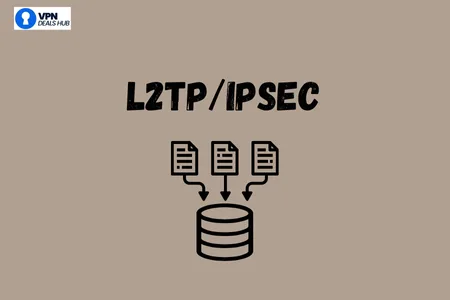
L2TP (Layer 2 Tunneling Protocol) by itself does not offer any encryption or confidentiality. That’s why it is almost always paired with IPSec (Internet Protocol Security), which provides robust encryption and security features. The combination of these two protocols makes L2TP/IPSec a popular choice for users who want better protection than PPTP without the complexities of OpenVPN.
L2TP/IPSec is supported natively on most modern operating systems, including Windows, macOS, Android, and iOS, making it easy to configure without third-party software. It typically uses 256-bit encryption, which offers solid protection against most threats. However, it may be slightly slower than newer protocols like WireGuard or OpenVPN due to the double encapsulation process, which adds overhead to the connection.
Another downside is that L2TP/IPSec can be more easily blocked by firewalls, especially in regions with strong censorship controls, because it uses fixed ports that are easy to detect.
|
|
Stronger encryption than PPTP, with a 256-bit key length in most implementations | Slower than newer protocols due to double encryption |
Built into most devices and operating systems | Can be blocked by NAT firewalls and strict networks |
More secure and stable than PPTP | Lacks flexibility and customization options |
Best for: General use where security is important and ease of setup is a priority.
Avoid if: You need top-tier speed or are in regions with strict censorship and firewall restrictions.
3. OpenVPN
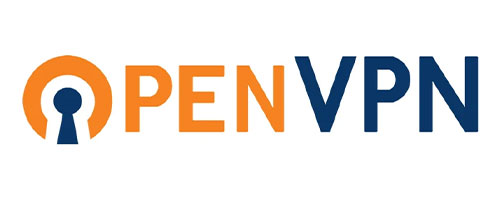
OpenVPN is one of the most popular and widely trusted VPN protocols today. Developed as an open-source project, OpenVPN has been peer-reviewed and audited extensively, which gives it a reputation for reliability, transparency, and strong security. It supports up to 256-bit encryption using OpenSSL, making it a top choice for privacy-conscious users.
OpenVPN stands out for its flexibility, especially when compared to legacy protocols like PPTP and L2TP. It supports both TCP and UDP, allowing users to choose between greater reliability and faster speeds based on their needs.OpenVPN over TCP ensures stable and reliable connections, while UDP offers faster performance, especially ideal for gaming, streaming, or VoIP.
Although setting up OpenVPN can be more technical than plug-and-play protocols like IKEv2, many commercial VPN providers simplify this process through easy-to-use apps. OpenVPN is compatible with a wide range of operating systems and devices, including Windows, macOS, Linux, Android, and iOS.
Because it can operate on any port and supports SSL/TLS encryption, OpenVPN is also excellent for bypassing firewalls and restrictive networks, making it one of the best options for users in censorship-heavy countries.
|
|
|
|
Open-source and regularly audited for security |
Slightly complex setup, especially for manual configurations |
|
Supports high-end encryption standards |
May require third-party software on some platforms |
|
Flexible — works with both TCP (reliable) and UDP (fast) |
May perform slower than WireGuard in certain scenarios due to more robust encryption. |
|
Excellent for bypassing firewalls and censorship |
|
|
Compatible with almost every operating system |
Best for: Privacy-focused users, torrenting, accessing restricted content, and users in high-censorship regions.\
Avoid if: You’re a beginner looking for the simplest, fastest setup with minimal configuration.
4. IKEv2/IPSec
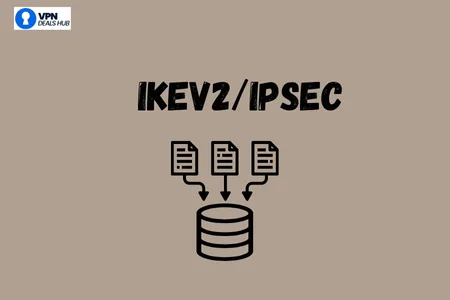
When combined with IPSec for encryption, IKEv2 (Internet Key Exchange version 2) delivers robust security and efficient performance as a VPN protocol. Developed by Microsoft and Cisco, IKEv2/IPSec is particularly well-suited for mobile devices due to its exceptional ability to maintain a stable and secure connection when switching between networks, such as moving from Wi-Fi to mobile data.
It supports high-end encryption (typically 256-bit) and is resistant to many known vulnerabilities. IKEv2/IPSec is also capable of quickly reconnecting after a temporary loss of internet, which makes it a favorite for smartphone and tablet users who are constantly on the move.
While IKEv2/IPSec offers top-tier performance and security, its major drawback is limited native support on older or less common operating systems, such as some Linux distributions or legacy hardware. That said, many modern VPN services support it by default, and it’s increasingly being used as a go-to protocol in corporate VPN environments.
✅ Pros | ❌ Cons |
Very fast and secure — among the best VPN protocols for speed | Limited support on older or niche platforms |
Extremely stable, especially for mobile users | It may be easier to detect and block by restrictive firewalls or censorship |
Supports strong encryption and quick reconnections | |
Ideal for users who often transition between different networks. |
Best for: Mobile users and those frequently switching networks, such as commuters and travelers.\
Avoid if: You need compatibility with older devices or require advanced customization in restrictive regions.
5. WireGuard
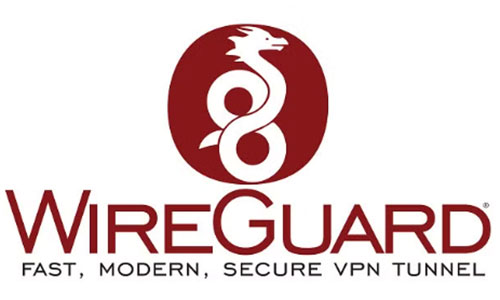
WireGuard has quickly emerged as one of the most innovative and promising VPN protocols in recent years. Designed to be lightweight, fast, and easy to audit, WireGuard is built using just a few thousand lines of code, compared to hundreds of thousands in legacy protocols like OpenVPN. This simplicity not only makes it easier to maintain and audit for vulnerabilities but also contributes to its impressive performance.
WireGuard leverages advanced cryptographic primitives, including ChaCha20 for encryption, Poly1305 for authentication, and Curve25519 for secure key exchange. These choices help deliver a secure VPN connection with lower latency and faster speeds, making it ideal for real-time applications like gaming, streaming, and video conferencing.
While WireGuard offers numerous benefits, it’s still a relatively new protocol and comes with certain limitations. For instance, it doesn’t natively handle dynamic IP assignment or advanced configurations like split tunneling as flexibly as older protocols. However, many commercial VPN providers have addressed these shortcomings with custom implementations and user-friendly apps.
WireGuard is often at the center of the OpenVPN vs WireGuard debate, where it typically wins in speed and simplicity, while OpenVPN continues to lead in versatility and established trust.
✅ Pros | ❌ Cons |
Ultra-fast and efficient — often rated as the best VPN protocol for speed | Still relatively new and evolving |
Uses modern, streamlined encryption algorithms | May lack advanced configuration options |
Lightweight codebase — easy to audit and maintain | Limited native support on legacy systems |
Excellent for mobile and desktop platforms | |
Quickly becoming the default choice for many VPN providers |
Best for: Speed lovers, gamers, streamers, and users of modern VPN apps.
Avoid if: You rely on highly customizable network setups or use older hardware.
Which VPN Protocol Should You Choose?
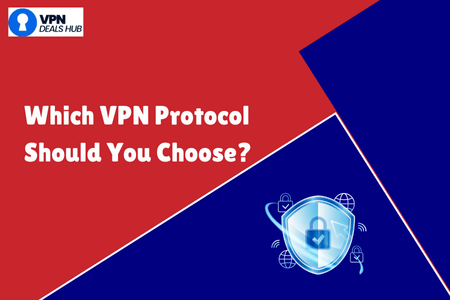
Selecting the right VPN protocol comes down to your specific use case, device compatibility, and performance requirements. To help you decide, let’s explore how different protocols stack up in various scenarios.
- If you prioritize speed (like for gaming or streaming), WireGuard is often the top choice due to its lightweight architecture and fast performance. PPTP is also fast but significantly less secure.
- For strong security and privacy, OpenVPN and IKEv2/IPSec are excellent options. OpenVPN is well-tested and open-source, while IKEv2/IPSec offers stability, especially on mobile devices.
- For mobile device users or those who switch networks often (e.g., from Wi-Fi to mobile data), IKEv2/IPSec is the ideal protocol because of its robust reconnection capabilities.
- To bypass censorship or firewalls, OpenVPN in TCP mode excels due to its ability to mimic HTTPS traffic, which helps it slip past most network restrictions.
- If ease of setup is your main concern, PPTP (for basic tasks) or IKEv2 (for more secure needs) offers user-friendly configuration on most platforms.
Here’s a quick VPN protocol comparison based on your needs:
Use Case | Recommended Protocol |
Best Speed | WireGuard or PPTP |
Strongest Security | OpenVPN or IKEv2/IPSec |
Mobile Devices | IKEv2/IPSec |
Bypassing Censorship | OpenVPN (TCP mode) |
Easy Setup | PPTP or IKEv2 |
Choosing the Right VPN Protocol for Your Needs
Understanding VPN protocols explained in detail is the first step toward securing your digital life. Each VPN protocol offers a unique blend of security, speed, and compatibility, and the ideal choice ultimately depends on how you use the internet.
- If you value speed and efficiency, WireGuard may be the best VPN protocol for speed and performance.
- For comprehensive privacy and flexibility, OpenVPN remains a robust and trusted solution.
- Mobile users who switch networks often will appreciate the seamless performance of IKEv2/IPSec.
- Simpler protocols like PPTP and L2TP/IPSec still have niche uses but are generally outdated for modern privacy needs.
Before settling on a VPN provider, make sure they support multiple protocols so you can customize your connection. Being able to switch between protocols gives you the power to choose the right balance between a secure VPN connection, speed, and accessibility based on the situation.
By understanding these options and comparing them effectively through this VPN protocol comparison, you’re well on your way to safer, smarter internet use, whether you’re streaming, working remotely, gaming, or simply browsing.
Frequently Asked Questions (FAQs)
What is the most secure VPN protocol?
OpenVPN and IKEv2/IPSec are widely regarded as two of the most secure VPN protocols available. OpenVPN is widely trusted due to its open-source nature and strong encryption, while IKEv2/IPSec offers reliable security and excellent performance, especially on mobile devices.
Which VPN protocol is best for speed?
WireGuard is acclaimed for offering the fastest VPN performance currently available. Its lightweight code and modern encryption deliver faster performance compared to older protocols like OpenVPN and L2TP/IPSec.
What’s the difference between OpenVPN vs WireGuard?
OpenVPN is a well-established, flexible, and highly secure protocol, but it can be slower due to its heavier encryption. WireGuard, on the other hand, offers faster speeds and a simpler codebase but is still newer and may lack some advanced features and long-term testing.
Are VPN protocols safe to use?
Most modern VPN protocols, like OpenVPN, WireGuard, and IKEv2/IPSec, are safe to use when implemented correctly by reputable VPN providers. Outdated protocols like PPTP, however, are no longer considered secure.
Can I change VPN protocols?
Yes, most quality VPN services allow you to switch between protocols in their app settings. Changing protocols lets you optimize your VPN for speed, security, or bypassing specific restrictions.
Which VPN protocol is best for mobile users?
IKEv2/IPSec is highly recommended for mobile users because of its ability to maintain stable connections while switching between networks, such as from Wi-Fi to mobile data.
Do VPN protocols affect streaming and gaming?
Yes. Faster protocols like WireGuard and IKEv2/IPSec are better suited for streaming and gaming because they offer low latency and higher speeds. Slower VPN protocols such as L2TP/IPSec can lead to buffering and lag during high-bandwidth activities.

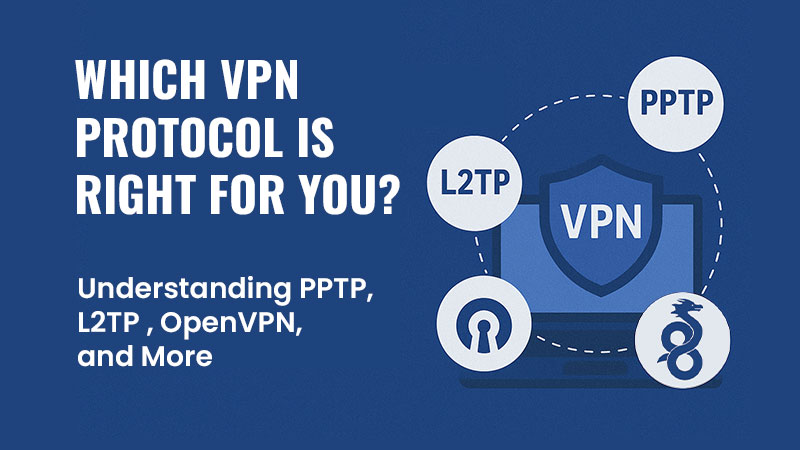
 Pros
Pros Cons
Cons
